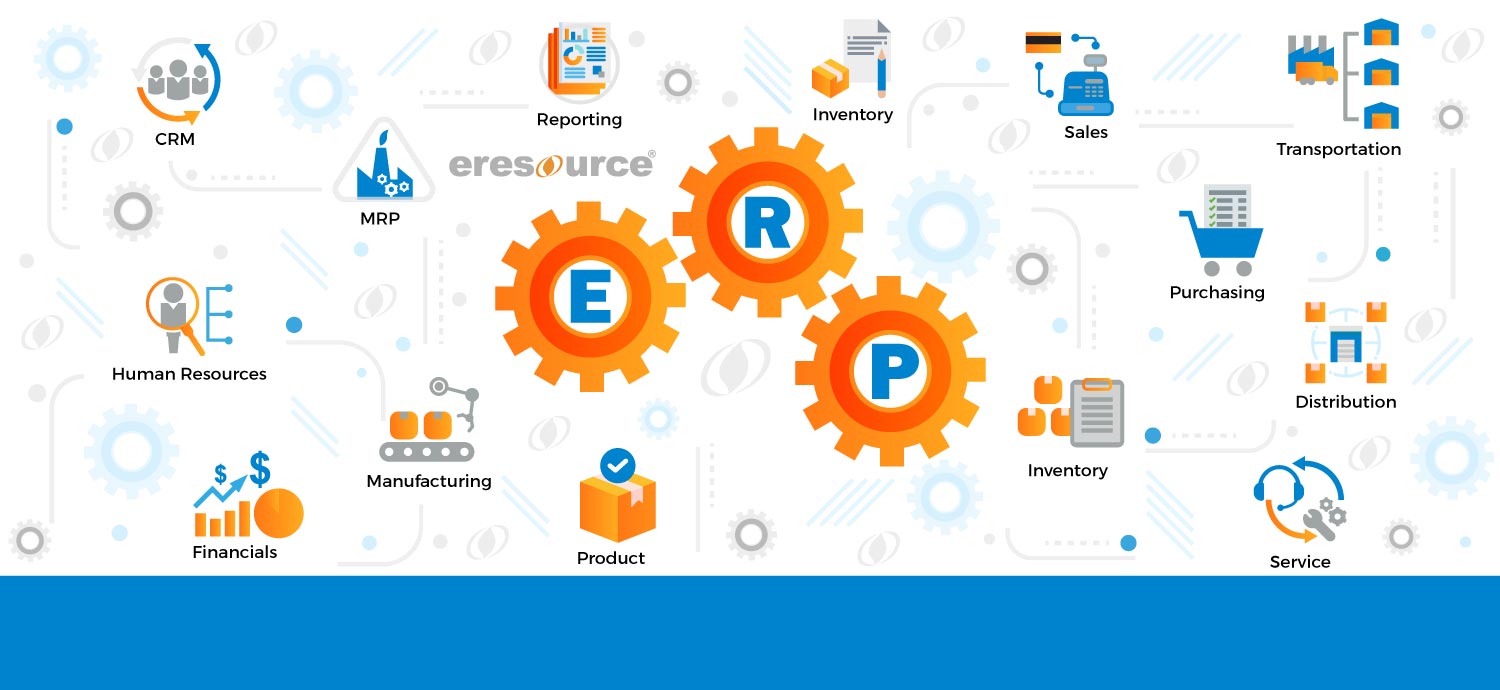An efficient ERP system should be used when businesses begin to see that their current methods are not producing the intended results and are preventing them from trying anything new.
The lack of an ERP system may cause information to get lost or sit in the wrong location, frequently resulting in poor decision-making procedures.
However, if eresource ERP system is implemented properly, it should be able to address any logistical issue related to paperwork in an organization. Improvements will undoubtedly result from this ERP system, but seeing this through to completion requires a committed management team.
eresource ERP system is comprised of numerous modules that work together to form the final configuration. The module for the sales department will encompass all aspects of sales invoices, accounting, creditors, and debtors, among other things. It should enable managers to make decisions based on current tasks, incoming debt, and anticipated sales volume soon.
Everything would work much more smoothly with eresource
eresource system’s human resource module manages the workforce for the business. It should enable managers to assign the most competent employees to critical roles, improving workload distribution. It will also keep an eye on the employees, alerting supervisors to any issues.
It is critical for the stores in a manufacturing organization to be aware of when products are needed and when inventory is running low. The managers should therefore be able to determine what products to order and when to order them by working with sales to ensure that production does not stall.
Any factory’s downtime is accounted for as an expense because there are still workers to pay, electricity bills to pay, building upkeep to complete, etc. Then, everything would go much more smoothly if there had been some kind of advance notice.
Customer relationship management, also known as a CRM module, handles all customer relations chores. This is crucial for businesses like chains of stores because serving consumers directly generates all of their revenue. This is extremely significant since it gives Customer Service desks documentation and processes and gathers data on complaints, returned goods, and pretty much anything customer-related.
eresource ERP serves all industrial sectors
The deployment of these modules can first seem a little intimidating because there are numerous of them that are integrated for use by various departments, sections, or branches. The management team and the implementation team must be resolute to get them to operate as a unit and ensure the system’s success.
Once an organization has decided to implement eresource ERP system, it is necessary to choose an appropriate package from the range of packages. Today eresource ERP serves many industrial verticals, such as manufacturing, pharmaceuticals, chemicals, automotive, the kitchen industry, fleet management, construction, and infrastructure, among others. eresources ERP software programs interface with many helpful modules, including human resources management, plant management, production management, engineering, finance (which includes robust forecasting and general ledger capability), and so on. The purpose of each of these ERP modules is to enhance the efficiency, communication, and coordination of these crucial back-office departments.
The first sector to profit from the usage of eresource ERP software was manufacturing. With improved inventory management, intellectual property tracking, and input/output control, many manufacturing organizations have been using eresource Xcel ERP software applications to optimize production processes and minimize related costs for the past few years. Businesses may also maximize labor utilization, do away with production schedule lag times, and enhance the efficiency of materials management with the help of eresource Xcel ERP software.
Please email sales@eresourceinfotech.com to learn about eresource ERP and its variations for different industrial verticals.
Categories
Register for Free Demo!
Recent Post
-

eresource ERP 360 - an
11th Apr 2019 -

A competitive ERP system for
17th Apr 2019 -

Auto components manufacturing industry has
17th Apr 2019 -

Make the best use of
17th Apr 2019







